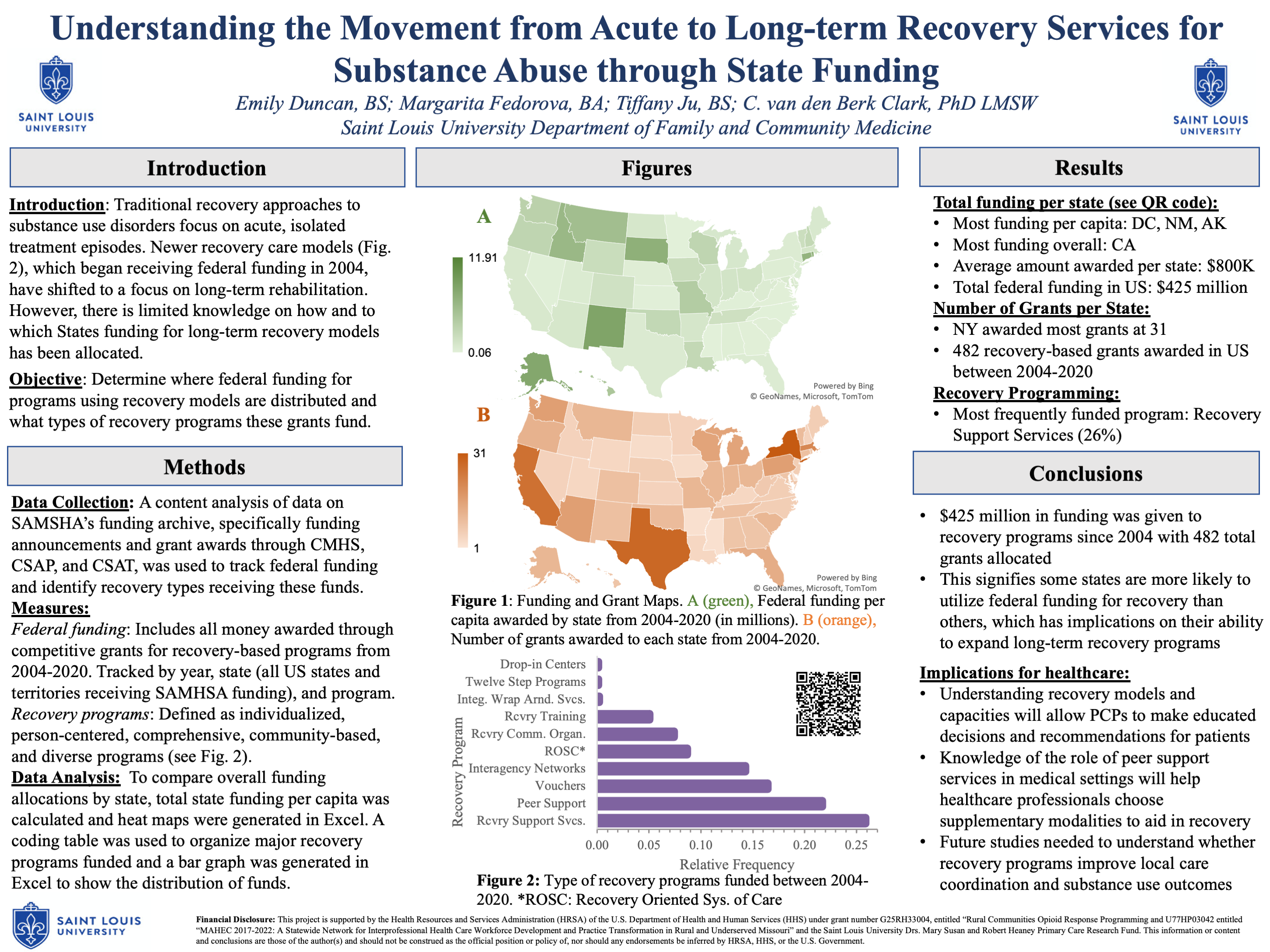SRFP114: Understanding the Movement from Acute to Long-term Recovery Services for Substance Abuse through State Funding
Emily Duncan, BS; Margarita Fedorova; Carissa van den Berk-Clark, PhD, LMSW, MSW; Tiffany Ju, BS
Abstract
Context: Treatment of substance use disorders has historically been delivered via acute encounters composed of bio-psycho-social stabilization and medication. Recently, as mutual aid societies are recognized for offering effective long-term addiction and recovery services in the US, newer perspectives of treatment have moved towards recovery-care models, which stress long-term supports and innumerable recovery pathways. However, not much is known about how long-term recovery models are funded and what types of programs are being implemented across the US. Objective: To determine (1) where federal funding streams focused on “long term recovery” are distributed and (2) what types of recovery programs these grants fund. Study Design: Observation study via online US governmental databases and websites and survey (state administrators). Setting: US States. Population Studied: Individual with Substance Use Disorder. Intervention/Instrument: Long term recovery management. Outcome Measures: Amount of federal funding awarded, and types of programs funded by State. Anticipated Results: Preliminary data shows that 50 states, plus Guam and the District of Columbia, received 486 recovery-based grants from 2004-2020. The average amount awarded per state was 800K (ranging from 164K-36.2 million). The most amount of funding occurred in the early 2000s and after 2014. The state that received the most funding overall was California, but when controlled for population, funding was higher in DC, South Dakota, and New Mexico. Peer support services, recovery support services, family support services, vouchers, and recovery care organizations comprised some of the frequently funded programs. Conclusions: Some states seem more likely to utilize federal funding for recovery than others, which has implications on the capacity of those states to expand long-term recovery programs. As more PCPs confront patients with substance use disorders and as many hospitals and inpatient treatment facilities partner with recovery care organizations and recovery-oriented systems of care, it is important that physicians understand the resources recovery care models can offer their patients. Future study is needed to better understand whether recovery programs improve local care coordination and substance use outcomes.

Jack Westfall
jwestfall@aafp.org 11/21/2021Great to see more students presenting at NAPCRG. This is a very important topic and research study. Nice work. Thanks